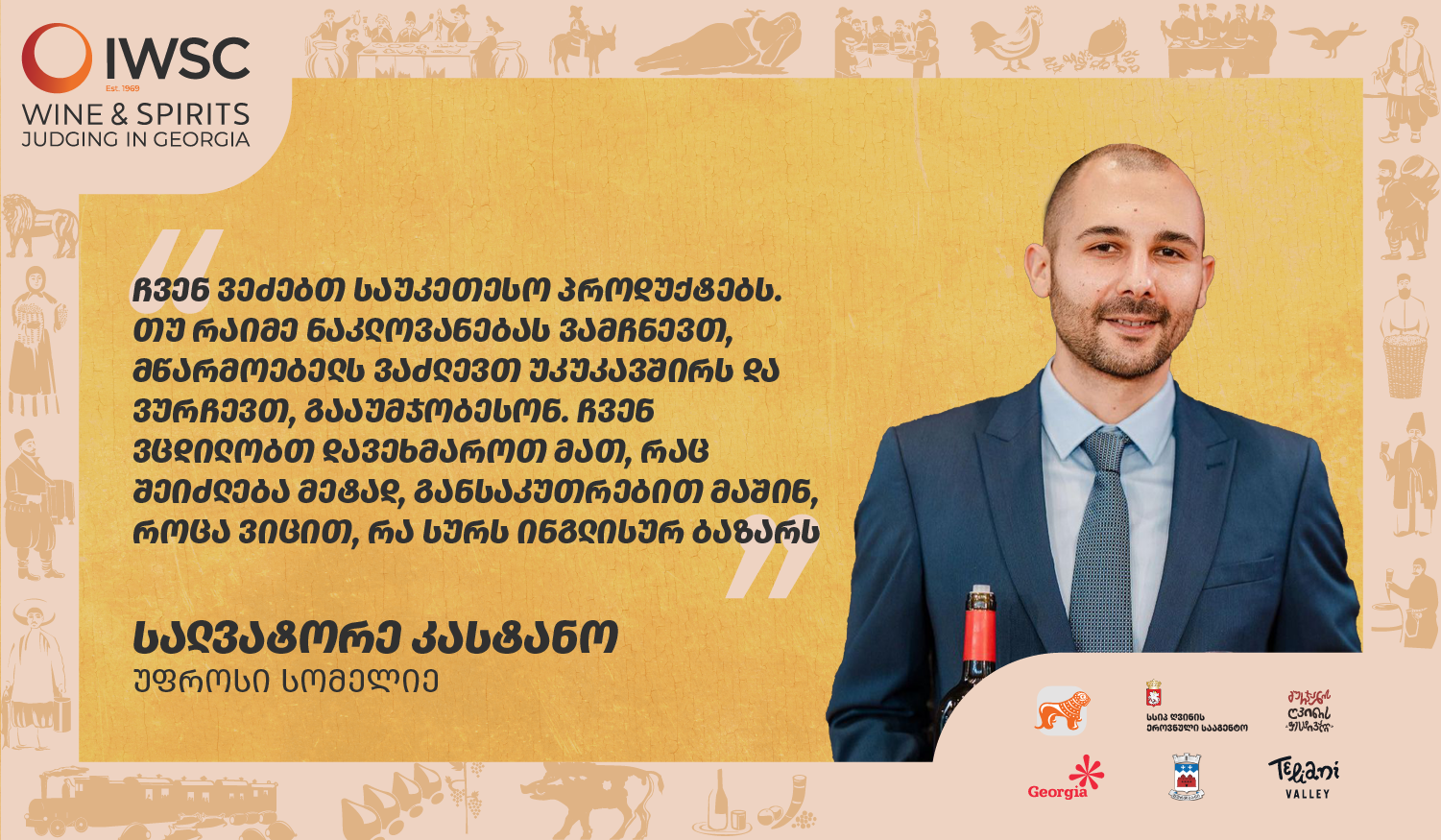
Salvatore Castano: For me, evaluating spirits is no different from evaluating wine, we are looking for the best products
If for the last two years the wine competition – IWSC Wine Judging in Georgia – was held in Georgia, this year the IWSC Wine and Spirits Judging in Georgia will be held, because for the first time, in addition to wine, it will be possible to submit chacha, brandy and other high-alcohol beverages to the competition.
One of the judges will be Salvatore Castano, well-known to Georgian winemakers, who never hides his love for Georgian chacha.
How do you think your experience in the wine industry will influence the evaluation of Georgian spirits? What unique characteristics do you look for the most, especially in chacha?
I think that when you taste wine and spirits, the approach is very different between the two. But in the end, you always look for the same characteristics, which means balance, freshness and aromaticity of the product. I also have to make sure that the product does not have any flaws. I’m a big fan of grappa, so…
As an Italian, my parents have the largest collection of grappa in southern Italy – over 160 bottles of grape distillates. Depending on the variety, the flavors and styles vary, some are more floral in style, others are more fruity.
Given your Sicilian origins and your current role in London, how do you approach evaluating spirits from a country with such a long tradition as Georgia?
Sicily and Georgia both have a rich history. Georgian winemaking is probably older than Sicilian. We always respect classic products and the history behind them. I believe that Georgia has one of the most interesting cultures, especially in terms of gastronomy. We always take into account its history and try to be as fair as possible to all products. For me, evaluating spirits is no different from evaluating wine; we look for the best products. If we notice any shortcomings, we give feedback to the producer and advise them to improve. We are not winemakers or spirits producers ourselves, but we try to help them as much as possible, especially when we know what the English market wants.
What aspects of Georgian drinks, including their spirits, do you find most interesting or unique?
What I love about Georgia – apart from my Georgian friends – is chacha.
But what I really love is their amber wine. For me, the amber wines they produce are among the best in the world. Some of the best samples I have tasted are from Georgia. The quality and precision in some of them are impressive. If I had to choose a wine like that, I would always look for a Georgian one.
How do you see the role of traditional spirits such as chacha in representing the heritage of Georgian spirits in the global market and what is its potential?
I think it’s a difficult market. Spirits are always a challenge, whether it’s chacha, gin or vodka. There are so many products on the market right now, and their number is growing. Plus, a lot of people don’t know what chacha is. So I think marketing plays a crucial role here. If you explain to the audience that chacha is similar to grappa, because both drinks go through the same process, it’s easier for people to understand. The Italians were a little smarter because they started promoting this product earlier. It’s harder for Georgian spirits to achieve the same thing, but I believe that with the right marketing, it’s possible.
